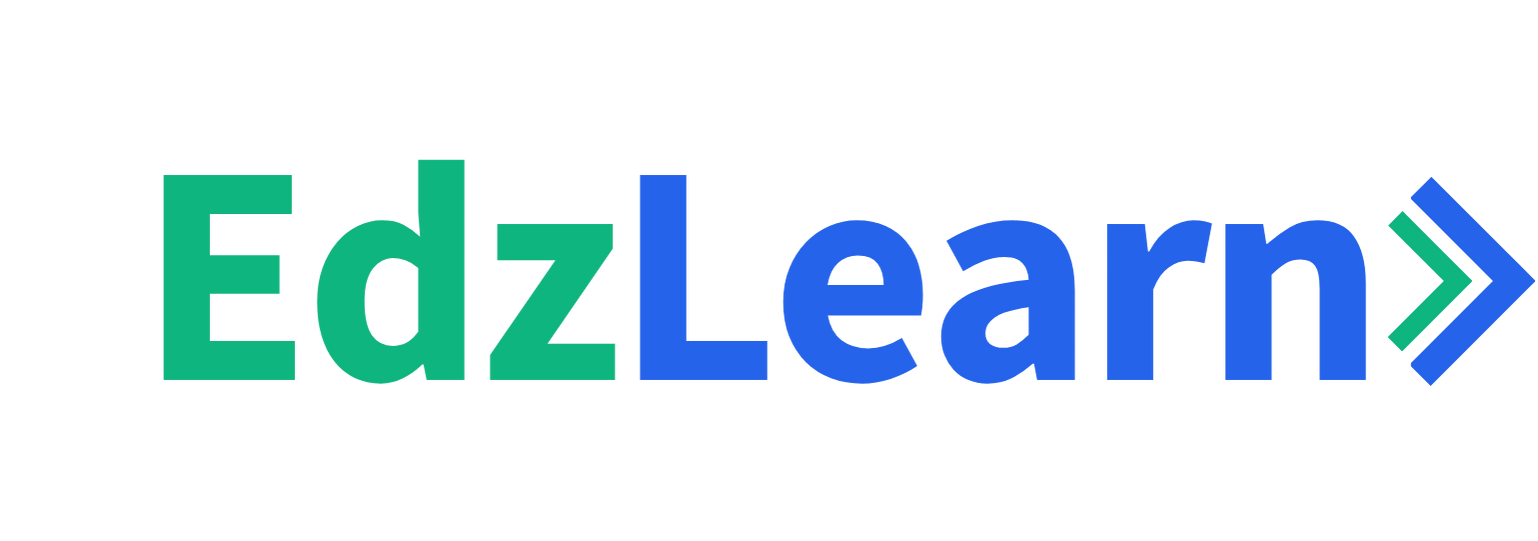Effective Online Assessments LMS have revolutionized the way educators evaluate student learning, offering flexibility and efficiency that traditional methods often lack. They are integral to modern learning management systems (LMS) and provide a platform for creating varied and dynamic evaluation tools. One of the primary advantages of online assessments is their ability to reach a wide audience, regardless of geographic location, making education more accessible than ever before. These assessments can be administered asynchronously, allowing students to complete them at their own pace, which can be particularly beneficial for those balancing other commitments.
Furthermore, online assessments facilitate immediate feedback, which is crucial for learning reinforcement. Students can quickly understand their performance, which helps them identify areas for improvement and reinforces learning objectives. This immediate feedback loop enhances the overall learning experience, making assessments not just a tool for grading but a valuable component of the learning process.
Additionally, online assessments offer a range of formats, from multiple-choice and short answer to more complex interactive questions, catering to various learning styles and needs. This diversity in question types can lead to a more comprehensive evaluation of student understanding. Moreover, the data collected from online assessments can be used to analyze trends and identify areas where students may be struggling, allowing educators to tailor their teaching strategies accordingly.
The integration of technology in assessments also promotes the development of digital literacy skills among students, preparing them for a tech-driven world. Overall, online assessments play a crucial role in enhancing the educational experience by offering flexibility, immediate feedback, diverse question formats, and valuable insights into student performance.
Choosing the Right Effective Online Assessments LMS Types for Your Learning Objectives
Selecting the appropriate assessment type is critical for effectively measuring student learning outcomes and aligning with your educational goals. The choice of assessment should be guided by the specific learning objectives you aim to achieve. For instance, if your goal is to assess basic recall of facts, multiple-choice questions or true/false formats can be efficient. These types of questions are straightforward to grade and can quickly measure whether students have grasped fundamental concepts.
On the other hand, if you are looking to evaluate higher-order thinking skills, such as analysis, synthesis, and application, more complex question types may be necessary. Essay questions, case studies, and project-based assessments can provide deeper insights into a student's ability to apply their knowledge in practical or theoretical scenarios. These types of assessments require students to articulate their understanding and demonstrate their ability to think critically.
For skills-based assessments, such as those involving practical or technical competencies, performance-based assessments or simulations may be appropriate. These can involve tasks that mimic real-world scenarios, allowing students to demonstrate their skills in a controlled environment. This approach is particularly useful for vocational or technical training where practical application is essential.
In addition to traditional assessments, incorporating formative assessments throughout the learning process can provide ongoing feedback and support student development. Formative assessments, such as quizzes or polls, help gauge student understanding in real-time and adjust teaching strategies as needed.
Ultimately, the choice of assessment type should align with your learning objectives, the nature of the content, and the skills you intend to measure, ensuring that each assessment provides meaningful insights into student learning.
Designing Clear and Concise Questions for Online Assessments
Effective Online Assessments LMS questions are essential for accurately measuring student understanding and ensuring the reliability of online assessments. Clear and concise questions help minimize ambiguity and ensure that students can focus on demonstrating their knowledge rather than deciphering complex or confusing wording. To achieve this, begin by clearly defining the learning objective that each question is intended to assess. This alignment ensures that the question is directly relevant to the material covered and accurately measures the intended skill or knowledge.
When designing questions, use straightforward language and avoid unnecessary jargon or complex phrasing. Questions should be precise and to the point, eliminating any potential confusion. For example, instead of asking, "Which of the following statements is the most accurate regarding the principles of thermodynamics?", you might ask, "Which principle of thermodynamics states that energy cannot be created or destroyed?" This more direct approach helps students understand exactly what is being asked and allows them to focus on their response.
Additionally, it is important to consider the structure of the questions. Multiple-choice questions should have one clear correct answer and plausible distractors to challenge students without misleading them. For open-ended questions, provide clear instructions on what is expected in the response, such as length or format. This clarity helps students provide answers that are relevant and aligned with the assessment criteria.
Finally, pilot testing your questions before full deployment can identify any issues with clarity or difficulty. Gathering feedback from a small group of students or colleagues can help refine questions and improve their effectiveness in measuring learning outcomes. Designing clear and concise questions not only enhances the accuracy of assessments but also supports a fair and meaningful evaluation of student performance.
Leveraging LMS Tools to Enhance Assessment Interactivity
Effective Online Assessments LMS offer a range of tools designed to enhance the interactivity and effectiveness of online assessments. Utilizing these tools can transform a traditional assessment into a more engaging and dynamic experience for students. One key feature is the ability to incorporate multimedia elements into assessments. For example, embedding videos, audio clips, or interactive simulations can provide context and deepen understanding. This multimedia approach can make assessments more engaging and can cater to different learning styles, such as visual or auditory learners.
Another powerful tool within many LMS platforms is the use of branching logic or adaptive assessments. This functionality allows for a more personalized assessment experience by tailoring questions based on a student's previous responses. For instance, if a student answers a question incorrectly, the LMS can direct them to additional practice questions or resources related to that topic. This adaptive approach helps address individual learning needs and provides targeted feedback, enhancing the overall learning experience.
Interactive question types, such as drag-and-drop, matching, or hotspot questions, can also be utilized to create more engaging assessments. These question formats require active participation from students and can assess a range of skills from problem-solving to spatial reasoning. They also help to break the monotony of traditional question formats and can make the assessment process more enjoyable.
Additionally, incorporating features such as timers, randomization of questions, and automatic grading can streamline the assessment process and reduce administrative burdens. Timers can create a sense of urgency and help manage the duration of assessments, while randomization ensures that each student receives a unique set of questions, reducing the likelihood of cheating. Automatic grading provides instant feedback and saves time for instructors, allowing them to focus on providing more personalized support where needed.
By leveraging these LMS tools, educators can create more interactive, personalized, and efficient assessments that enhance the overall learning experience for students.
Ensuring Accessibility and Inclusivity in Online Assessments
Ensuring accessibility and inclusivity in online assessments is essential for providing an equitable learning environment for all students. Accessibility means designing assessments that can be accessed and used by students with diverse needs and abilities, including those with disabilities. This involves adhering to best practices and guidelines, such as the Web Content Accessibility Guidelines (WCAG), which provide standards for making digital content more accessible.
One fundamental aspect of accessibility is ensuring that all assessment content is compatible with screen readers and other assistive technologies. This includes providing text alternatives for images, using clear and simple language, and ensuring that the assessment's navigation is intuitive and keyboard-friendly. Proper use of headings, labels, and descriptions can also aid in making assessments more accessible.
Incorporating options for different assessment formats can support inclusivity. For example, offering the choice between multiple-choice questions, essays, or oral presentations allows students to demonstrate their knowledge in ways that best suit their abilities. Additionally, providing extended time or alternative formats for students with documented accommodations ensures that all students have the opportunity to succeed.
Another important consideration is the use of clear instructions and support materials. Providing guidance on how to navigate the assessment platform and offering practice tests or tutorials can help all students, especially those who may be less familiar with online assessment tools, to perform at their best. Clear instructions on what is expected in each assessment question can also help reduce anxiety and confusion.
Finally, regular feedback and continuous improvement are key to maintaining accessibility and inclusivity. Gathering feedback from students about their assessment experiences can highlight areas for improvement and ensure that the assessments remain fair and supportive. By prioritizing accessibility and inclusivity, educators can create assessments that provide equitable opportunities for all students to demonstrate their learning.
Best Practices for Providing Timely and Constructive Feedback
Timely and constructive feedback is a critical component of the learning process, as it helps students understand their strengths and areas for improvement. Providing feedback promptly after an assessment is crucial, as it allows students to connect their performance with the content they have recently studied. This immediacy helps reinforce learning and guides students in addressing any gaps in their understanding before they move on to new material.
To ensure feedback is constructive, it should be specific and actionable. Instead of general comments like "Good job" or "Needs improvement," provide detailed insights into what was done well and what could be improved. For example, if a student’s essay lacked cohesion, feedback might include, "Your essay provides strong arguments, but you need to improve the transitions between paragraphs to enhance the overall flow." This specific guidance helps students understand exactly where and how they can make improvements.
Incorporating examples or model answers can further clarify your feedback. Providing a concrete example of what a high-quality response looks like helps students visualize the standards expected and can guide their efforts in future assessments. Additionally, balancing positive reinforcement with areas for growth motivates students and builds their confidence.
Utilizing LMS tools for feedback, such as comment features or voice recordings, can enhance the feedback experience. Written comments are effective, but voice recordings can add a personal touch and clarify complex points more easily. Regularly scheduling feedback sessions or check-ins can also ensure that students have ample opportunities to discuss their performance and ask questions.
Ultimately, effective feedback is not just about pointing out errors but guiding students towards improvement. By providing timely, specific, and actionable feedback, educators can help students better understand their learning journey and make meaningful progress.
Strategies for Preventing Cheating and Ensuring Academic Integrity
Maintaining academic integrity in online assessments is a significant challenge, but several strategies can help mitigate the risk of cheating and uphold standards of fairness. One effective approach is to design assessments that minimize opportunities for dishonest behavior. This can be achieved by using question pools to randomize question selection, ensuring that each student receives a unique set of questions. Additionally, incorporating time limits on assessments can reduce the chance of students seeking external help or consulting unauthorized resources.
Another key strategy is to employ proctoring tools or systems that monitor students during assessments. Online proctoring solutions, such as browser lockdowns, video surveillance, and AI-based monitoring, can help detect and deter dishonest behavior. These tools can track suspicious activities and ensure that assessments are completed under monitored conditions, thereby enhancing the credibility of the results.
Creating assessments that focus on higher-order thinking skills can also reduce the likelihood of cheating. By designing questions that require critical thinking, analysis, and application of knowledge, rather than rote memorization, you encourage students to demonstrate their understanding in a more meaningful way. This approach makes it harder for students to simply copy answers from external sources.
Educating students about academic integrity and the consequences of dishonesty is another essential component. Providing clear guidelines and expectations, as well as discussing the importance of academic honesty, can help foster a culture of integrity. Additionally, offering support resources, such as academic writing assistance and study aids, can help students complete assessments honestly and to the best of their abilities.
By implementing these strategies, educators can create a more secure and fair assessment environment that upholds academic integrity and supports genuine student learning.
Analyzing Assessment Data to Improve Learning Outcomes
Analyzing assessment data is a powerful tool for enhancing the effectiveness of teaching and improving learning outcomes. By systematically reviewing assessment results, educators can gain valuable insights into student performance, identify trends, and make data-driven decisions to support student success. One key aspect of data analysis is examining overall performance metrics to determine how well students are meeting learning objectives. This includes evaluating average scores, distribution of grades, and the percentage of students meeting or exceeding expectations.
In addition to overall performance, analyzing question-level data can reveal patterns in student responses. Identifying questions that are frequently missed or misunderstood can help pinpoint areas where students may need additional instruction or support. For example, if a significant number of students struggle with a particular concept, it may indicate a need for reteaching or additional resources on that topic.
Comparative analysis, such as assessing performance across different groups or over time, can also provide valuable insights. For instance, comparing results between different cohorts or analyzing changes in performance over multiple assessments can help identify instructional strategies that are effective or areas where improvements are needed.
Using data visualization tools, such as charts and graphs, can make it easier to interpret and communicate findings. Visual representations of data can help highlight trends and patterns, making it more accessible for both educators and students to understand.
Finally, it is important to use assessment data to inform instructional practices and make adjustments as needed. Based on the analysis, educators can adapt their teaching strategies, provide targeted interventions, and refine assessment methods to better align with learning goals. By leveraging assessment data effectively, educators can enhance the learning experience and support continuous improvement in student outcomes.
Integrating Assessments with Course Content and Learning Pathways
Integrating assessments seamlessly with course content and learning pathways is essential for ensuring that evaluations are relevant and meaningful. This alignment ensures that assessments are not isolated events but are embedded within the overall learning experience. Start by aligning assessments with the specific learning objectives of the course. Each assessment should directly measure the knowledge or skills that students are expected to acquire. This alignment helps ensure that assessments accurately reflect the course content and provide a clear indication of whether learning goals are being met.
Incorporating assessments at various points throughout the course can also enhance learning and retention. Formative assessments, such as quizzes and discussion boards, can be used to gauge understanding and provide feedback before summative assessments. This approach allows students to address any misconceptions and build their knowledge progressively. Summative assessments, such as final projects or exams, should assess the cumulative knowledge and skills acquired throughout the course.
Designing effective online assessments LMS that require students to apply their knowledge in practical or real-world contexts can also enhance their relevance. For example, project-based assessments or case studies that relate to real-life scenarios can help students see the practical application of their learning. This integration not only makes assessments more meaningful but also prepares students for real-world challenges.
Providing clear connections between assessments and course content helps students understand the purpose of each assessment and its role in their learning journey. Clearly communicating how each assessment ties into the learning objectives and overall course goals can motivate students and improve their engagement. By integrating assessments with course content and learning pathways, educators create a cohesive learning experience that supports student success and reinforces key concepts.
Troubleshooting Common Issues in Online Assessments
Troubleshooting common issues in effective online assessments LMS is crucial for ensuring a smooth and effective evaluation process. Addressing technical problems, user errors, and other challenges promptly helps maintain the integrity of the assessment and provides a positive experience for students. One common issue is technical difficulties, such as problems with the LMS platform or internet connectivity. To mitigate these issues, ensure that your LMS is regularly updated and maintained to minimize glitches. Providing students with clear instructions on how to resolve common technical problems, such as resetting passwords or checking browser compatibility, can also help them navigate issues more effectively.
Another challenge is ensuring that assessments are accessible and function correctly for all students. This includes testing assessments on different devices and browsers to identify and address any compatibility issues. Additionally, providing students with guidelines on how to access and complete assessments, as well as offering support resources, can help prevent confusion and ensure that all students have a fair opportunity to complete the assessment.
Addressing issues related to academic integrity, such as preventing cheating or detecting plagiarism, is also essential. Implementing proctoring tools and utilizing plagiarism detection software can help maintain the credibility of assessments. Educating students about academic integrity and the importance of honest work can further reinforce expectations and reduce the likelihood of dishonest behavior.
Lastly, having a plan for handling unexpected issues, such as system outages or disruptions, is important. Establishing protocols for communicating with students, providing alternative assessment options, and extending deadlines if necessary can help manage any unforeseen problems and ensure that assessments are completed fairly.
By proactively addressing these common issues, educators can ensure a smoother assessment process, uphold academic standards, and provide a positive experience for students.
Conclusion
Creating effective online assessments LMS involves a multifaceted approach that addresses various aspects of the assessment process. Starting with a clear understanding of why online assessments are important, educators can leverage their flexibility and efficiency to enhance the learning experience. Choosing the right assessment types aligned with learning objectives ensures that evaluations are relevant and meaningful. Designing clear and concise questions helps in accurately measuring student understanding, while leveraging LMS tools can make assessments more interactive and engaging. Ensuring accessibility and inclusivity is crucial for providing equitable opportunities for all students, and timely, constructive feedback supports continuous improvement. Implementing strategies to prevent cheating upholds academic integrity, while analyzing assessment data helps refine instructional practices and improve learning outcomes. Integrating assessments with course content and learning pathways ensures coherence and relevance, and troubleshooting common issues ensures a smooth and effective assessment process. By addressing these elements, educators can create robust and effective online assessments LMS that enhance student learning and success.
Ritika Sexena,Content Writer and Social Media Manager at Edzlearn Services PVT LTD.
For More Information Connect With Her on Linkedin : https://www.linkedin.com/in/ritika-saxena0355/
Read our Recent Blogs: https://edzlms.com/blogs/
Download our Recent Case Study: https://edzlms.com/case-study/
For anything related to LMS, feel free to reach out or book an appointment at
https://calendly.com/edzlms/30min.




